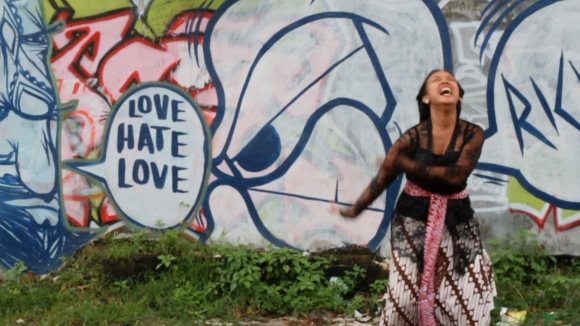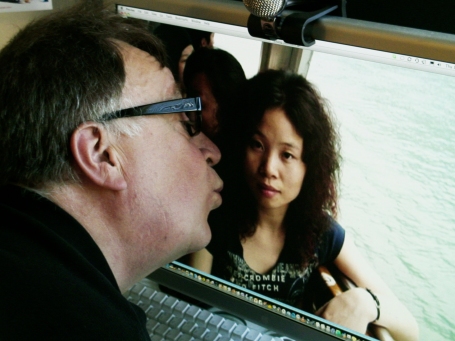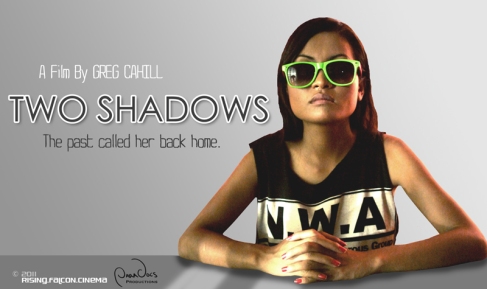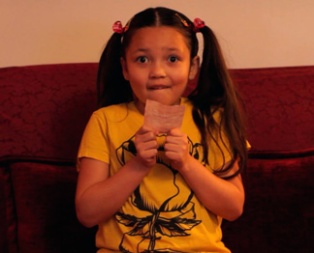Archive for November, 2012
AAIM 2012 Festival Poster
Click here to download 11″ x 17″ PDF of poster (14MB)
Engaging Pasts
ORGANIZED AND CURATED BY MS100 PZ (ASIAN AMERCIANS IN MEDIA) STUDENTS from films shown at the 2011 and 2012 Los Angeles Asian Pacific Film Festival
As part of the 3rd Annual Asian Americans in Media Film Festival, Engaging Pastsfeatures a collection of short films and videos that document Asian American histories and experiences ranging from soldiers in World War II combat to colonization and mass migration in the Southeast Asia and the Pacific Islands. These works deploy a myriad of ways to connect the past with the present, including the excavation of a forgotten Chinese community in the Pacific Northwest, as well as the recording of intimate familial relations and community ties through photography. These works look at history through different lenses: from oral histories, to dance and movement, to Nisei re-enactment in order to create unique and compelling stories that, when woven together, become part of the diverse tapestry of the Asian American historical experience.
This documentary short follows the filmmaker’s father as he recounts the conflicts he faced when his family was forced to flee Vietnam in the 1970s.
-JOURNEY (2011) Dir. Asiroh Cham*
Julie Thi Underhill was born to a Cham-French mother and an American father. As a mixed-race Cham American, she struggled to fit in, and to uncover her roots, travels to Vietnam and Cambodia.
-TWO SECONDS AFTER LAUGHTER (2011) Dir. David Rousseve
An experimental video inspired by Sri Susilowati’s* experience of leaving Indonesia to become a dancer in America.
-ALL AMERICAN (2011) Dir. Everett Lee-Sung
A young private in WWII awaits Nazi intrusion at any moment. In the panic, he learns what it means to be courageous as a fallen soldier leads him to question his true identity as a Japanese American soldier.
-MAGELLAN DOESN’T LIVE HERE (2012) Dir. Micki Davis*
Mario Borja, a craftsman and amateur historian, brings his crew back to Guam in a hand built Sakman, reconstructing a history of his people from Naval archives to a Pacific crossing.
-THE CHINESE GARDENS (2012) Dir. Valerie Soe*
This documentary looks at a lost Chinese community in Port Townsend, WA, examining connections between past and present race relations in the United States.
-THAT PARTICULAR TIME (2012) Dir. Jeff Man*
Following Eddie Orisho’s sudden death in 2005, a decade’s worth of photographs he took documenting his Little Tokyo community in Los Angeles are discovered in his tiny studio apartment.
*Filmmakers that will be present for Q&A after the screenings
Hosted by: Isabella Michaelson, Cassandra Martinez, and Aliza Lalji
The program will be followed by a reception at 5:30PM
Where: Room 217, Smith Campus Center, Pomona College
Come share delicious snacks and beverages with Festival filmmakers, organizers and other guests!
Seeking Asian Female

Seeking Asian Female, directed by Debbie Lum and Tina Ngyuen, follows the story of Steven Bolstad, a twice-divorced white American in his early 60s and his 30-year-old Chinese mail order bride, Sandy Bolstad. Beginning with Steven’s search and tracing the development of their unconventional relationship, this film examines the themes of global migration and Asian-American relations while challenging contemporary notions of love and relationships. This documentary offers insight into “yellow fever” while maintaining a sense of humor throughout. The screening will be followed by a question and answer session with the filmmakers, as well as an exclusive preview of their newest project.
Two Shadows
(2011) Dir. Greg Cahill
7:00PM
Two Shadows tells the story of young Cambodian-American Sovanna as she searches for her long-lost brother and sister in Cambodia. Sovanna travels alone to Cambodia after receiving a cryptic letter claiming that her siblings, who disappeared during the Civil War twenty years prior, are still alive. After finding a girl who may or may not be her real sister, Sovanna encounters increasingly dangerous situations in attempts to help the girl. Sovanna struggles between maintaining her own personal safety, and showing compassion to her (possible) sister. Two Shadows explores issues of contemporary Cambodian-American experience and examines the effects of the Khmer Rouge genocide of 1975-1979 in Cambodia. Winner of the Audience Award, Cinematography Award and nominated for the Grand Jury Award at the 2012 Los Angeles Asian Pacific Film Festival.
The screening will follow a reception with free food and great conversation in Smith Campus Center room 217. The reception will begin at 5:30PM.
The director will be joining us for the screening to answer any questions.
Run time: 94 minutes
When: Saturday, December 1, 2012 at 7PM
Where: Rose Hills Theater, Smith Campus Center, Pomona College
Hosted by Lauren Moon, Josh Weiss and Kasey Taylor
“This is How I Say I Love You:” Exploring the Diversity of Relationships within Asian American Families
This series of shorts challenges and nuances traditional representations of the model minority family, instead exploring how different configurations of race, class, gender, and sexuality create a myriad of complex relationships. Asian American families are also intimately shaped by immigration and transnationalism, and although this makes attainment of the idealized middle class American nuclear family lifestyle difficult, it also can lead to resilient and creative bonds between loved ones. Drawing from a wide range of Asian American experiences—first generation to second generation, Iranian to South Asian to East Asian to Filipino, upper class to working class, heterosexual to queer—these shorts investigate the diverse ways Asian American families confront their historically-grounded challenges, ultimately legitimizing the different ways they come to say “I love you.”
- Revolution (2011) Directed by Abdi Nazemian
Situated ten years after the 1979 Iranian Revolution and in the midst of the Los Angeles AIDS crisis, a seemingly perfect Iranian American family is troubled by shifting dynamics of ethnicity, class, and sexuality.
- Still Life With (2012) Directed by Ami Patel*
A queer Indian women struggles to balance her love for her partner and her parents.
- Basketball, Meri Jaan (2012) Directed by Veena Hampapur*
A vivacious Indian woman named Yeshodhara, who immigrated to the United States thirty years ago, uses her passion for basketball to form a community in which she belongs.
- Play Time (2011) Directed by Roxana Shih
An Asian American man comes home from his work to his picturesque middle-class family; however, this family has shocking secrets beneath its perfect image.
- Mother & Child (2012) Directed by Jocelyn Saddi-Lenhardt*
A Filipino mother living with her son in Los Angeles struggles with how to place her husband, who remains back in the Philippines.
- Awaken (2011) Directed by Dieu Huynh*
David Cho, who came to the United States when nine years old with his family in pursuit of the American Dream, is one of the many undocumented students fighting for the Dream Act.
- 1124 (2012) Directed by Michelle Gutierrez*
The simple task of collecting cans is transformed from an act of menial labor to a special way to build a relationship between a Filipino grandfather and his mix-raced granddaughter.
*These filmmakers will be at the event to answer questions and discuss their films!
Run time: 45 minutes
When: Friday, November 30, 2012 at 4:00pm
Where: Rose Hills Theater, Smith Campus Center, Pomona College
Hosted by Evyn Espiritu, Bill Tang, and Kanna Jeyaseelan
Click here to check out our Facebook event page!
Terminal USA and Mommy Mommy Where’s My Brain? Class Discussion
Asian American Punk and Underground Films
The two films we are presenting today are Mommy Mommy Where’s My Brain? (1986) and Terminal USA (1993), written and directed by Jon Moritsugu. Jon Moritsugu was born in Honolulu, Hawaii in 1965 and started filmmaking at Brown University in the mid 80’s. As an underground filmmaker, Moritsugu writes, edits, and distributes most of his pieces. He also works with his wife, Amy Davis, who co-writes, co-produces, and acts in many of his films. Jon Moritsugu’s films have been featured in many festivals such as Sundance, Moma, and Cannes, and his piece Fame Whore was considered for an Academy Award in 1999. Unfortunately, this film was rejected for an award because it was not screened on the mandatory 35mm.
Terminal USA is a 60-minute film that tells the story of an alternative Japanese American family and their experiences with drugs, sexuality, and violence. One New York Times review describes this film as a scathing satire: “The family is comprised of Japanese Americans that fit into the typical Anglo sitcom family mod. The results are hilarious as they deal with drugs, sexuality, discrimination, aging, and the perils of parenting.” As we have seen in other Independent Asian American Media, Terminal USA provides an alternate and more post-modern narrative of Asian American identity, culture, and experience.
Mommy Mommy Where’s My Brain? is a 10-minute short that Moritsugu completed at Brown University. During an interview in May 2012, Jon Moritsugu describes this film as a “Marxist critique of post-commodity representations…or…shock cuts/rotting meat/feedback/death/rock/barnyardin’/earwrecking (in an ironic way)…it’s sorta like hanging out with Derrida and then sticking your head in a toilet to escape the noise.” This piece is black and white and visually schizophrenic, with a non-linear narrative and unconventional scenes.
Both Mommy Mommy Where’s My Brain? and Terminal USA are considered punk and underground films in the sense that they both have a “lo-fi” aesthetic, and filmed with 16 mm cameras, and produced using a limited budget. Moreover, both of these films are considered absurdist comedies that capture rebellious feelings and attitudes of American youth.
A few questions that we want you to consider while watching the clips are, would these films be considered post-modern? How do these films present Asian American identity? In a positive or negative light? Do they reinforce or deconstruct orientalizing stereotypes?
Additional topics:
-Terminal USA is a parody of censorship as well as a parody of Asian stereotypes
The 3rd Asian Americans in Media (AAIM) Film Festival @ The Claremont Colleges (November 30 and December 1, Rose Hills Theatre, Pomona College)
ORGANIZED AND CURATED BY MS100 PZ (ASIAN AMERCIANS IN MEDIA) STUDENTS from films shown at the 2011 and 2012 Los Angeles Asian Pacific Film Festival
FRIDAY NOVEMBER 30
THIS IS HOW I SAY I LOVE YOU
4:00PM
This program features a collection of short films and videos that explore the diversity of relationships within Asian American families, both traditional and non-traditional. The works in this collection challenge and nuance traditional representations of the model minority family through the investigation of how different configurations of race, class, gender, sexuality create a myriad of complex relationships. Drawing from a wide range of Asian American experiences—first generation to second generation, Iranian to South Asian to East Asian to Filipino, upper class to working class, heterosexual to queer—these shorts investigate the diverse ways Asian American families confront their unique historically-grounded challenges, ultimately legitimizing the different ways they come to say “I love you.”
REVOLUTION (2010) Dir. Abdi Nazemian
STILL LIFE WITH (2011) Dir. Ami Patel
BASKETBALL, MERI JAAN (2012) Dir. Veena Hampapur
PLAY TIME (2011) Dir. Roxana Shih
MOTHER & CHILD (2012) Dir. Jocelyn Saddi-Lenhardt
AWAKEN (2011) Dir. Dieu Huynh
11 24 (2011) Dir. Michele Gutierrez
SEEKING ASIAN FEMALE
(2012) Dir. Debbie Lum
7:00PM
Seeking Asian Female follows the story of Steven Bolstad, a twice-divorced white American in his early 60s and his 30-year-old Chinese mail order bride, Sandy Bolstad. Beginning with Steven’s search for an Asian bride and tracing the development of his unconventional relationship with Sandy, this documentary film examines the themes of global migration and intercultural relations while challenging contemporary notions of love and relationships. Seeking Asian Female offers insight into “yellow fever” while maintaining a sense of humor throughout.
SATURDAY DECEMBER 1
ENGAGING PASTS
4:00PM
This program features a collection of short films and videos that document Asian American histories and experiences ranging from soldiers in World War II combat to colonization and mass migration in the Southeast Asia and the Pacific Islands. These works deploy a myriad of ways to connect the past with the present, including the excavation of a forgotten Chinese community in the Pacific Northwest, as well as the recording of intimate familial relations and community ties through photography. These works look at history through different lenses: from oral histories, to dance and movement, to Nisei re-enactment in order to create unique and compelling stories that, when woven together, become part of the diverse tapestry of the Asian American historical experience.
TO LIGHT (2011) Dir. Sheldon Chau
JOURNEY (2011) Dir. Asiroh Cham
TWO SECONDS AFTER LAUGHTER (2011) Dir. David Rousseve
ALL AMERICAN (2011) Dir. Everett Lee-Sung
MAGELLAN DOESN’T LIVE HERE (2012) Dir. Micki Davis
THE CHINESE GARDENS (2012) Dir. Valerie Soe
THAT PARTICULAR TIME (2012) Dir. Jeff Man
FESTIVAL RECEPTION
5:30PM
Room 217, Smith Campus Center, Pomona College
Come share delicious snacks and beverages with Festival filmmakers, organizers and other guests!
TWO SHADOWS
(2011) Dir. Greg Cahill
7:00PM
Two Shadows tells the story of young Cambodian-American Sovanna as she searches for her long-lost brother and sister in Cambodia. Sovanna travels alone to Cambodia after receiving a cryptic letter claiming that her siblings, who disappeared during the Civil War twenty years prior, are still alive. After finding a girl who may or may not be her real sister, Sovanna encounters increasingly dangerous situations in attempts to help the girl. Sovanna struggles between maintaining her own personal safety, and showing compassion to her (possible) sister. Two Shadows explores issues of contemporary Cambodian-American experience and examines the effects of the Khmer Rouge genocide of 1975-1979 in Cambodia. Winner of the Audience Award, Cinematography Award and nominated for the Grand Jury Award at the 2012 Los Angeles Asian Pacific Film Festival.
ALL FESTIVAL EVENTS ARE FREE AND OPEN TO THE PUBLIC
All Festival screenings at Rose Hills Theatre, Smith Campus Center, Pomona College. Festival filmmakers will be present at all screenings.
This Festival is funded in part by Pitzer College Campus Life Committee, Pitzer Community Engagement Center (CEC), Intercollegiate Media Studies (IMS) at the Claremont Colleges, and the Intercollegiate Department of Asian American Studies (IDAAS) at the Claremont Colleges. Additional thanks to Abraham Ferrer and Visual Communications.
Further inquiries, contact: Prof. Ming-Yuen S. Ma ming-yuen_ma@pitzer.edu
Victoria’s New Secret
In September 2012, a CNN article called attention to Victoria’s Secret “Go East” Collection. One particular number in the collection – the “Sexy Little Geisha” – raised eyebrows, especially from the Asian-American community. Many found it offensive and accused Victoria’s Secret of exploiting sexual stereotypes of Asian women.
Joz Wang, co-editor of the blog 8Asians, could see why the getup was called racist. The catalog picture of a voluptuous blonde model in a sheer mesh teddy with cutouts and strategically placed Asian floral patterns is a hyper-representation of the geisha girl. “Part of me says: maybe they’re just clueless,” said Wang, who noted that Victoria’s Secret has not used Asian models very much – in their catalogs or on their runways. So, it is plausible that they just didn’t know.
Bust, a woman’s pop culture magazine, pointed out that there wasn’t necessarily anything wrong with a clothing company incorporating Japanese patterns. “That in itself isn’t racism, it’s globalization,” but, “considering the complicated history of geishas, repurposing the ‘look’ for a major corporation to sell as role-playing lingerie seems a bit tasteless,” Bust said.
As we have learned in class, Asian women are typically typecast in Western society as the Dragon Lady or the Butterfly (though in this article, they use the China Doll typecast instead). Says Wang, “I think this has caught fire, especially with Asian American women, who are having to overcome exotic stereotypes.” Additionally, she notes that it doesn’t help to see “something that was so overtly Orientalist and exploitational,” Wang said.
Wang found it interesting that the Victoria’s Secret model wearing the “Sexy Little Geisha” was not Asian, but white. Cornell University’s Minh-Ha Pham, an academic whose research focuses on the convergences of race, gender, fashion and social media, said it was significant that the model was obviously white. The image was a version of racial drag that has a long history in the United States, said Pham, curator of the blog Of Another Fashion. “Playing Oriental,” or as we call it in class, “Yellow Face,” can be traced back to 1900s Vaudeville stages, where playing out fantasies of racial exoticism (as a way of dealing with racial anxieties) was a wildly popular cultural activity.
Victoria’s Secret has remained silent on the matter. A CNN call to a company publicist still has not yet been returned.
By Priscilla Hsu







